Burglar alarms alert occupants, neighbors, and onlookers about any intrusions to protect your home. Burglar alarms work together with PIR motion detectors and door and window sensors to detect unexpected movements in your house. The movement captured by PIR sensors will trigger the alarm sirens to produce a loud noise and send an SMS alert to the owner.
Therefore, burglar alarms can greatly improve the safety and security of your house. But have you ever wondered if burglar alarms actually keep your home away from the sight of burglars? Let’s find out!
Do Alarms Actually Deter Burglars?
According to SafeWise reports of 2023, there were over 847,522 burglaries reported in all of the US. Additionally, 1200 burglaries were reported in Wales and England in 2022. The hard part is that most of these burglaries were in homes with alarm systems. So, the question is: Do alarms actually deter burglars?
Home security alarm systems can, in fact, discourage criminals from targeting a residence. This is due to the fact that alarm systems are efficient in alerting the homeowner and authorities as well as drawing attention to a property through the loud alarm siren. Burglars are prone to rob a place that does not have a security system for obvious reasons.
There have been a lot of case studies to understand whether alarms are helpful and the verdict remained: they help deter burglars. According to recent research, almost 60% of burglars would try to select a different target if there was an alarm, and many would even take the time to check if a home had an alarm system before breaking in.
According to another study, around half of the burglars who discovered an alarm system after breaking into a house would give up on their endeavor.
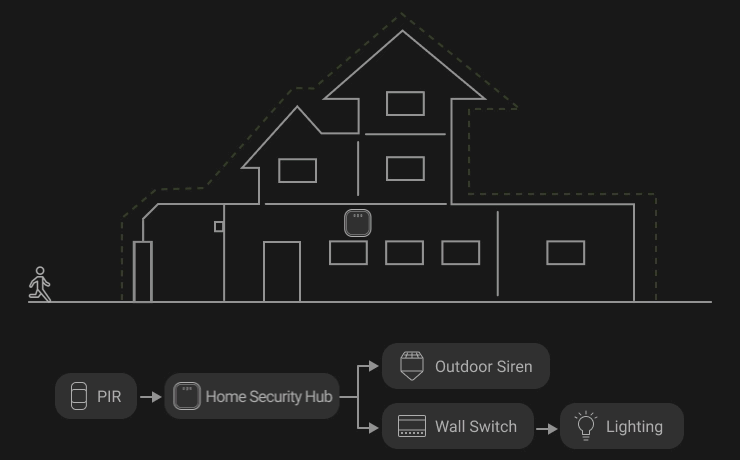
Is An Alarm System Enough to Deter Burglars?
While having a home intrusion alarm system installed will help deter burglars, it’s crucial to realize that it is not enough to protect you and your property from break-ins. Unfortunately, there’s still a possibility that a thief might decide to target your house. After all, alarm systems are just a technical way to adopt high-tech like IoT to improve your home security. You have to do your part as well.
Your home intruder alarm should ideally be installed correctly by following the user manual of the home security device supplier to ensure optimal performance and a higher level of deterrence for your property. The effectiveness of the alarm system also depends on you remembering to operate arm away and arm stay each time you stay or leave the house, especially at night.
Additionally, make sure that the outdoor siren alarm is visible to intruders from the outside of your house.
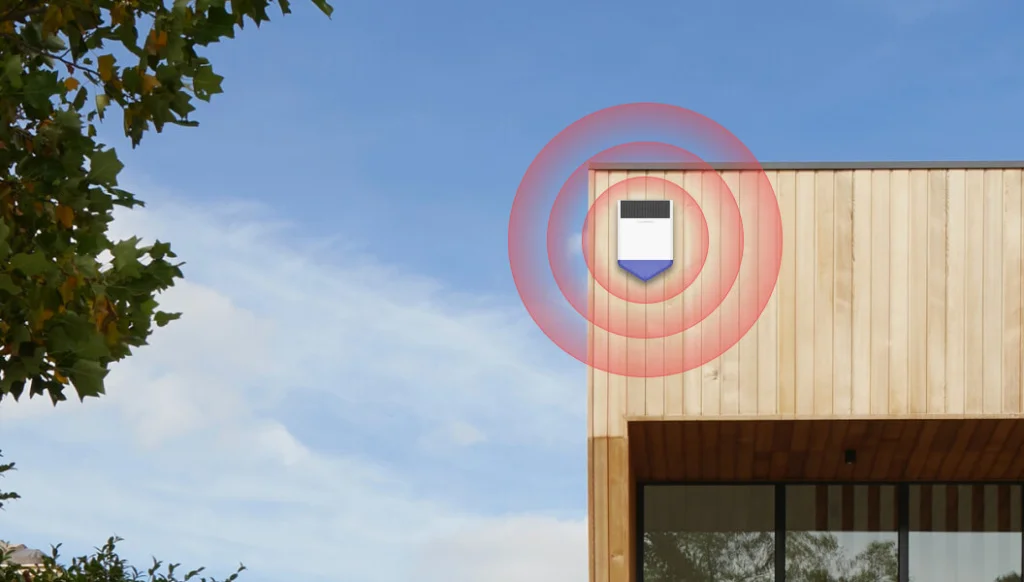
Whether you’re a house owner, an apartment renter, or a retail store owner, you need to ensure proper safety for your place. Here are some tips to keep your place safe:
- Upgrade Door and Window Locks: Install high-quality deadbolts and locks, as well as door and window sensors on all entry points. You can even consider motion sensors for added security.
- Add Alarm Systems: Install burglar alarms with loud sirens and flashing lights to alert you and scare off intruders. Additionally, smoke detectors and carbon monoxide detectors are also essential for early warning in case of fire or gas leaks.
- Well-Lit Exterior: Ensure that outdoor areas such as entrances, parking lots, and walkways are well-lit to deter criminals and provide visibility at night. Additionally, if you use security systems with integrated cameras, good lighting will help take clear pictures.
- Secure Common Areas: In apartment buildings or shared spaces, you should provide access control systems and home security hubs to prevent unauthorized entry and centralized control.
What Are the Different Types of Burglar Alarms?
It’s important to take into account the type of burglar alarm systems you have installed when evaluating whether a home alarm can effectively prevent burglaries. Alarm systems come in a variety of forms to keep you and your property secure.
Here are some of the most common types of alarm systems.
Contract and No-Contract Alarm Systems
Contract alarm systems usually require a long-term contract that may range from one to five years. You have to pay a fixed monthly fee for the monitoring services and maintenance. The good part is that these systems offer professional installation and ongoing technical support.
However, there are some drawbacks to using this system, especially for renters who are not looking to stay for a long time. Additionally, you might have to pay early termination fees if the contract is canceled before the agreed-upon term.
On the other hand, a no-contract home alarm system allows you to enjoy all the advantages of a security system without having to sign a contract. It lets you employ the tools and services that best suit your requirements at any given time, all without having to pay for unnecessary additions.
While you will have to pay the monthly charges for some providers, many other providers, like Roombanker, don’t charge any monthly fees, and you won’t be tied to a long-term contract.
Wired and Wireless Alarm
Wired systems are powered by the building’s electrical wiring, ensuring a constant power supply without the need for battery replacements. Signals from wired security systems are more dependable because they are not subject to structural or electromagnetic interference.
However, professional installation is necessary for hardwired systems, and this comes at an additional cost on top of the equipment cost and monthly monitoring. In order to reach the wires, the installer will need to make incisions in your walls, which might not be feasible if you rent. Additionally, it may break the home environment beauty.
Renters, historic residences, and structures with substantial interior brick, stone, or marble architecture will find wireless alarms to be an appealing alternative because it eliminates the need for drilling holes. Additionally, most wireless apartment alarm systems are portable for homeowners and renters.
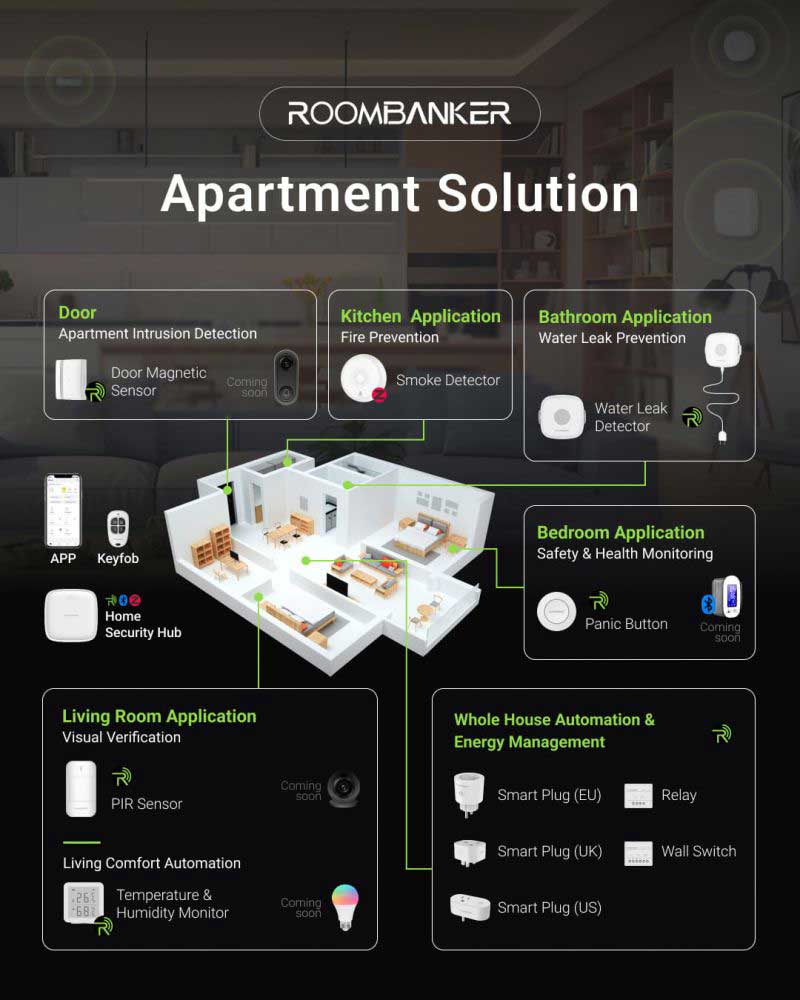
The reliability of wireless technology could be a disadvantage. Wireless security alarm systems are susceptible to interference, much like Wi-Fi routers and telephones, which could result in your sensor not responding at all or responding inconsistently. But Roombanker’s RBF technology is an exception.
Local Monitoring and Central Monitoring Alarm System
The most basic system is a local alarm, which is frequently installed manually. Customers can purchase each system component separately, which means that you can purchase the door alarms, window alarms, and motion sensors as per your needs.
Most residential buildings prefer having local alarm systems installed. These systems sound a very loud alarm and send messages to your smart device to warn home and business owners of possible burglaries, fires, and unwanted intrusions.
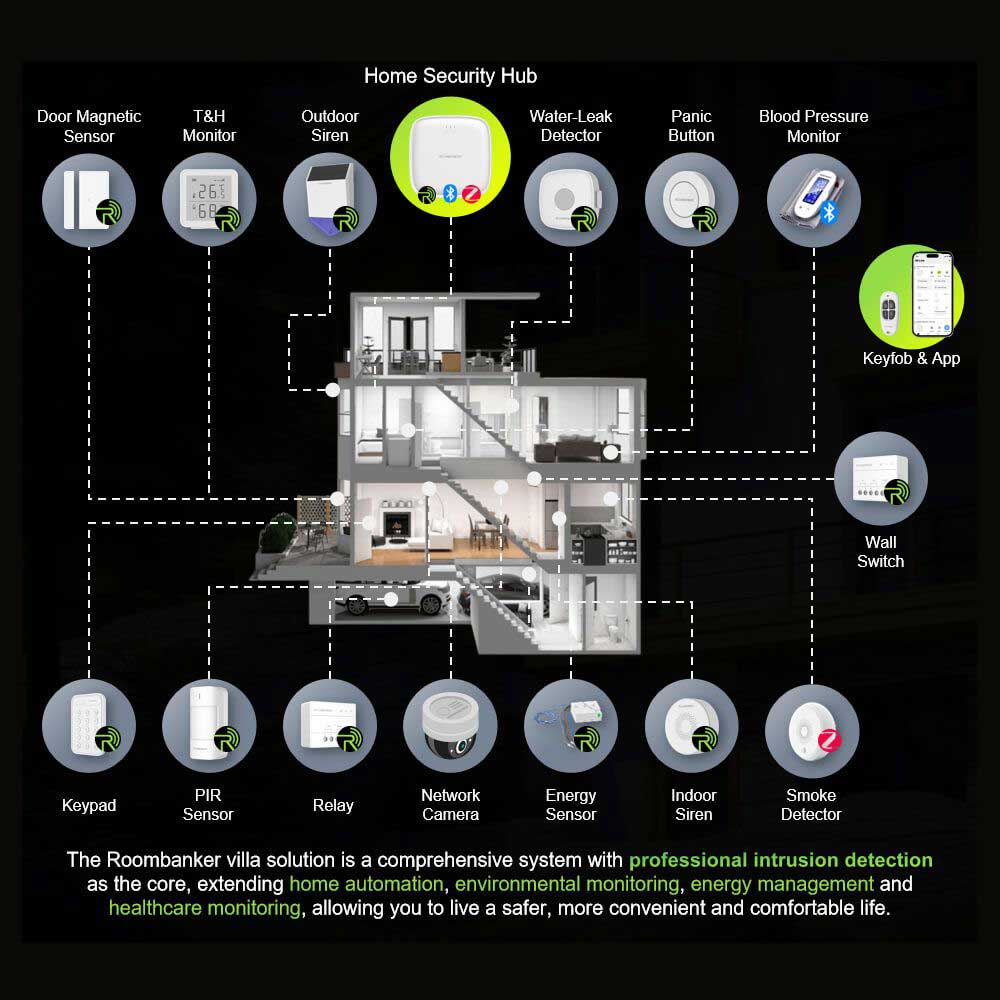
Central monitoring stations oversee central alarm systems around the clock for a monthly fee. This implies that as soon as the alarm goes off, a signal is immediately transmitted to the monitoring station, where people are constantly on hand and prepared to assist.
The operator of the monitoring station will assess if there is a genuine emergency or merely a false alarm after receiving the signal. The operator will quickly alert the appropriate authorities to respond in the event of an emergency.
What Other Security Alarm Devices Can Help Deter Burglars?
Having an alarm system does not help deter burglars altogether. You need to have a complete home security system set up to prevent burglars from looking at your place as a target.
Here are some devices that can help deter burglars:
- Alarm Sirens
The use of an alarm siren can discourage intruders from entering your place. Professional systems with cameras and motion detectors are very useful to keep your home and office safe. This integration can also help take pictures in case of an intrusion.
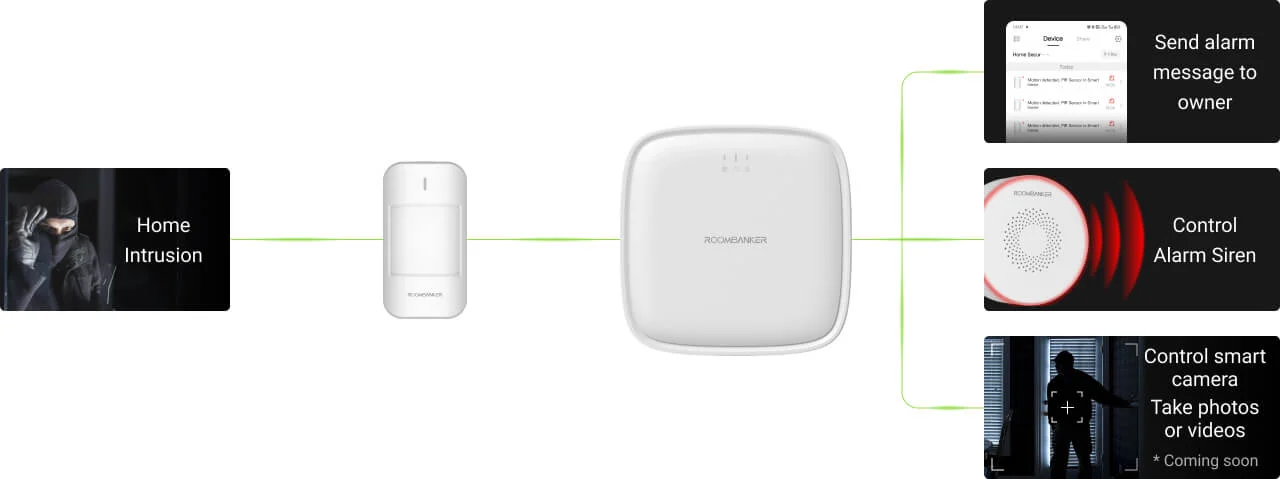
Wireless alarm sirens with loud sounds and flashing lights help grab the attention of your neighbors and scare off burglars effectively.
- Motion Sensors
While cameras are great for monitoring intrusions, not everyone likes to be under the watch of a camera. You can use motion sensors instead to alert you in case someone is at the entry or exit point of your place.
We recommend using PIR sensors because they are pet-friendly. When the PIR sensor is functioning, it stays extremely vigilant. When a person enters your area, it will instantly alert the owner and activate the pre-programmed protection mechanism, guaranteeing a prompt response to any threats.
- Door Sensors
Door sensors are very helpful in deterring burglars. It has a split structural construction that allows the door magnetic sensor to be installed on windows and doors independently.
When the sensor detects an unauthorized entry while the system is armed, it generates an alert right away, allowing for a prompt response to any potential security breaches.
- Smart Security Hub
Smart devices help keep your home modern, automated, and secure. But it can be difficult to manage these devices if you have too many of them. Smart hubs serve as a central point of communication for all the gadgets in a smart home, connecting them all through a single interface.
They act as the brains of a smart home network that gives users central command over a range of devices.
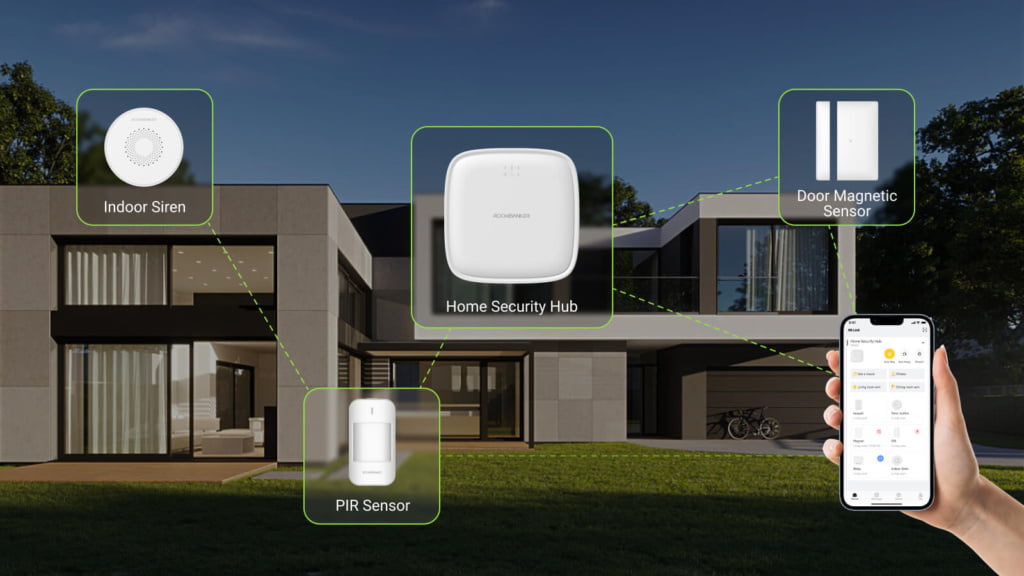
Take Away
So, to answer your question if burglar alarms are worth it, yes, they are a good investment. You just have to be careful about the quality and service of the alarm system.
It is also part of your duty to operate and maintain the device according to the user manual. Both device and human work will make a burglar alarm system worth the investment.
Additionally, you can add other security devices to your place and control them using a smart hub. This will reduce the chances of burglaries in your home.
Roombanker provides state-of-the-art professional wireless security devices that help keep your home, office, and store safe. Additionally, our devices provide DIY installation integration across multiple scenes, making them a good choice for renters who do not want additional installation expenses.
